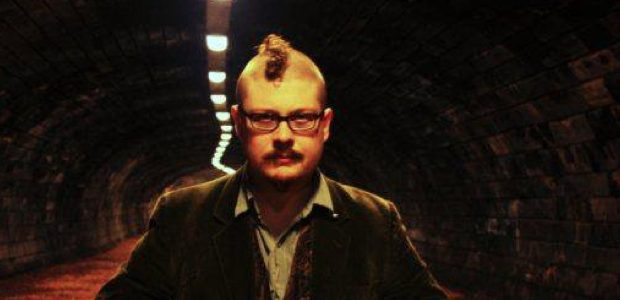Myths can underpin our beliefs, opinions and traditions. They exist globally, share facets of creation and have ultimately positioned themselves as literary necessities in certain dramatic structures. Written by Sam Cunningham-Siggs, director Rachel McEwen’s graduate production The Scarfian Muse offers investigations of universal education, mythological moralities and the personal changes these legends can reflect.
Connor (Ross McNab) and Carrie (Lara Fabiani) have an almost ideal relationship. Yet as an escalating series of events “force Carrie into a realisation that changes everything”, the consequences of unleashing both truth and evil are darkly explored and unravelled. McEwen describes how “Gerald Scarfe is mentioned quite a few times in the text, as is the idea of muses”, helping to almost organically construct the play’s title. And as with some of the director’s earlier work, this piece explores the idea of grotesque (“which is what a Scarfian muse is”) as well investigating the Pandora’s Box myth, alluding to conversations on moral necessity, judgement and consequence.
McEwen’s inspection of this myth can help to metaphorise the shifting introspections we all encounter, as she explains how, for her, “they teach everyone a lesson and are part of society’s foundation”. From the superstitions of walking under ladders, to the moral curiosities of opening Pandora’s Box, our individuality can be both influenced and transformed to shape our very nature. And for the final year students who are going through the ultimate academic change – from the “safety net” of the university student to the anxiety of professional, independent practitionership, explorations of myth can offer a quiet rejoice to a section of life which has involved so much personal development. And there’s something quite touching about this piece, as it acts as a recognition of McEwen’s own education throughout her life. For all its academic and emotional exploration, she admits how this play is “a nice way to acknowledge everyone who’s ever taught me a lesson and to thank them”.
